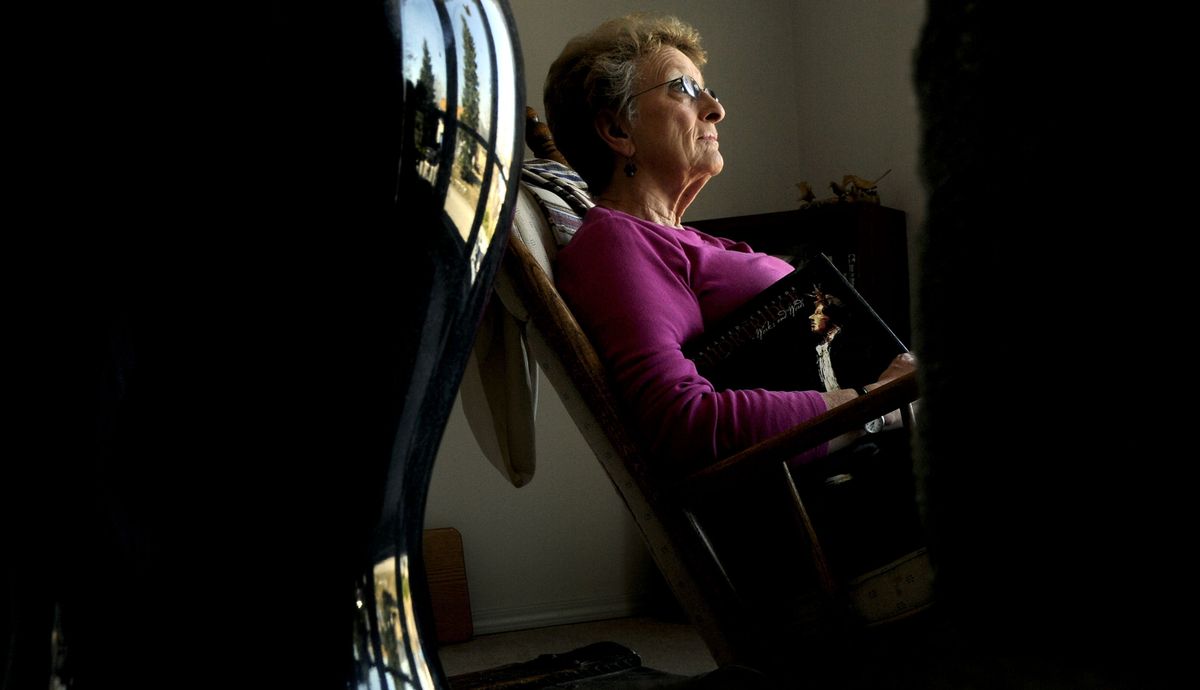Bernadette Haddleton, 70, Post Falls

Her childhood: She grew up in upstate New York. “My mother was bipolar and she was an angry bipolar. The main feeling in our home was fear. We were threatened verbally every day.” Her father worked nights as a cheese-maker in a dairy. During World War II, he worked double shifts; his job was considered essential to the war effort because it provided food. “We didn’t see much of him,” she recalls.
The family also lived on the outskirts of town, increasing the isolation. Haddleton was diagnosed (incorrectly it turned out) with rheumatic fever when she was in the second grade, forcing her indoors. “My only escape was through the window of reading. I read a book a day.”
Her favorite books: The Heidi series. “They took me to a beautiful place and gave me hope that my ‘disability’ could be overcome. I’m now 70 and still want to run in Heidi’s meadow and see the Swiss Alps.” She especially loved Heidi’s hayloft room, a place of peace, in contrast to the chaos of Haddleton’s home. She also cherished “Anne of Green Gables” and “Rebecca of Sunnybrook Farm” and “Misty of Chincoteague.”
How books changed her life: Haddleton was an independent, outspoken girl in a time when that wasn’t encouraged, and the strong girl characters gave her courage to be herself. She grew into a woman at the cutting edge of trends, such as natural labor and childbirth and breastfeeding practices in the 1960s and 1970s. “I’ve always been in a fight for women to live their lives fully.”
Haddleton also realized that “as we mature, we have the choice to continue unhealthy childhood patterns. We can choose abuse, victimhood, hiding or (choose) other forms of coping.”
With the help of Heidi, Anne, Rebecca and Misty, Haddleton chose other forms of coping and is proud of her long marriage, three children, nine grandchildren and return to school to get a nursing degree. To this day, she says, “I still read about strong women.”
Rebecca Nappi